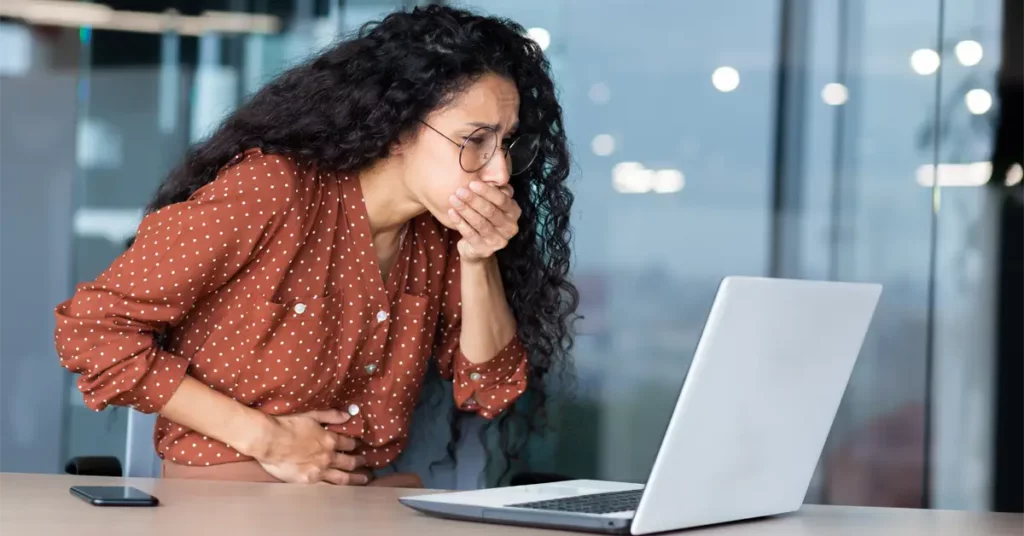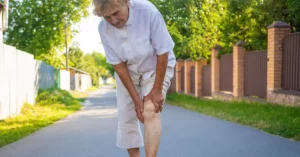Every year during the third full week of March, National Poison Prevention Week is observed to raise awareness about the dangers of poisoning. One common cause of poisoning is foodborne illnesses, which affect millions of Americans annually. In fact, statistics show that approximately 1 in 6 Americans (or 48 million people) experience food poisoning each year, leading to 128,000 hospitalizations and 3,000 deaths. Fortunately, there are several simple steps you can take on how to prevent food poisoning before it starts. Additionally, utilizing remote patient monitoring (RPM) technology can help you stay proactive about your health and identify any potential issues before they develop into major problems.
Understanding Food Poisoning
Food poisoning is a common condition that occurs when someone consumes food or drink that is contaminated with harmful bacteria, viruses, parasites, or chemicals. The severity of food poisoning can vary, from mild stomach upset to life-threatening illness.
- Causes of Food Poisoning: The most common causes of food poisoning include poor food handling, inadequate cooking or reheating, and cross-contamination. Poor food handling practices such as leaving food at room temperature for too long, not washing hands properly, and using unclean utensils can lead to the growth of harmful bacteria. Inadequate cooking or reheating can also cause food poisoning as it fails to kill the bacteria present in the food. Cross-contamination, which occurs when bacteria from raw meat, poultry, or seafood spreads to other foods, can also cause food poisoning.
- Common Symptoms of Food Poisoning: The symptoms of food poisoning typically begin within a few hours to a few days after consuming contaminated food. The most common symptoms include nausea, vomiting, stomach cramps, diarrhea, fever, and dehydration. Symptoms may vary depending on the type of contaminant present in the food.
- Duration of Food Poisoning: The duration of food poisoning depends on the type of contaminant and the severity of the infection. In most cases, the symptoms of food poisoning last for a few days to a week. However, some people may experience severe symptoms that can last for several weeks.
- Groups at Risk of Food Poisoning: Anyone can get food poisoning, but certain groups are at a higher risk of developing severe symptoms. These include young children, pregnant women, older adults, and people with weakened immune systems. People with chronic illnesses such as diabetes, liver disease, or kidney disease are also at an increased risk of developing severe symptoms.
In summary, you can take steps to prevent food poisoning before it starts by understanding the causes, symptoms, and risks associated with it. To reduce the risk of food poisoning, it is essential to practice good food handling, cooking, and storage techniques, and avoid cross-contamination. If food poisoning has already occurred, seeking prompt medical attention, rehydration, and taking necessary steps to prevent complications is crucial.
If you or someone you know experiences severe symptoms such as dehydration, bloody diarrhea, high fever, severe abdominal pain, and vomiting, it is important to call 911 or seek immediate medical attention. Additionally, contacting poison control at 1-800-222-1222 can provide guidance on the appropriate steps to take in case of food poisoning. Remember that swift action is critical in preventing severe complications associated with food poisoning.
Preventing Poisoning from Substances Other Than Food
While food poisoning is a significant concern, it’s not the only type of poisoning that can harm you or your loved ones. Here are other common poisons that you should be aware of and how to prevent exposure:
- Household products or chemicals: To prevent accidental ingestion or inhalation of poisonous products commonly found in households such as cleaning products, pesticides, detergents, and personal care products, it is important to keep all chemicals safely stored in locked cabinets or out of reach of children and pets. Make sure to store these products safely and avoid leaving them unattended in areas where they can be easily accessed.
- Carbon monoxide: It is crucial to be aware of the dangers posed by carbon monoxide, an odorless and colorless gas that can be fatal if inhaled in large amounts. This gas is typically generated by defective heating systems or vehicle exhaust. To ensure the safety of your household, it is important to install a working carbon monoxide detector that will sound an alarm if dangerous levels of the gas are detected. Additionally, it’s crucial to have your heating system checked regularly to prevent the production of carbon monoxide. If your detector goes off or you suspect a leak, quickly evacuate your home, get some fresh air and call for emergency assistance.
- Medications: To prevent the risk of poisoning from medications, it is essential to handle prescription and over-the-counter medicines with care. Reading labels and adhering to dosage instructions is crucial to avoid adverse reactions. Additionally, it is important to keep medicines in their original containers and store them in sealed cabinets to prevent accidental ingestion.
- Plants: Some plants, such as poison ivy, poison oak, and poison sumac, can cause a severe allergic reaction or poisoning if touched or ingested. Learn to identify poisonous plants and avoid touching or ingesting them.
- Alcohol: Alcohol poisoning is a severe and potentially deadly condition that can occur if a person drinks too much alcohol in a short period of time. Drink alcohol in moderation and never drive while under the influence.
- Lead: Exposure to lead-containing products like old paint, contaminated water, or batteries can result in lead poisoning. If you live in an older home, it is recommended to get your water and paint tested for lead to identify potential sources of exposure. In case of a child’s exposure to lead for more than 2 hours or suspected ingestion, immediate medical attention should be sought to prevent serious health consequences.
By being aware of these common poisons and taking steps to prevent exposure, you can help keep yourself and your loved ones safe.
Poison Prevention and DrKumo Remote Patient Monitoring
DrKumo state-of-the-art RPM technology is a highly scalable, continuous, real-time solution that provides patients with the ability to manage their health conditions in the comfort of their own homes, while also providing healthcare providers with real-time intelligence for timely intervention. This technology can be a powerful tool in helping patients prevent food poisoning by enabling them to monitor their health and detect potential issues early.
The Importance of Poison Prevention and RPM for Patients
RPM technology allows you to monitor your health from the comfort of your home, with the assistance of healthcare providers. With DrKumo RPM, you can receive timely interventions and real-time intelligence that can help in the prevention of food poisoning.
How DrKumo RPM Helps in Poison Prevention
DrKumo RPM technology solutions utilize continuous, real-time monitoring and AI/ML engine to provide you with effective solutions. With this technology, you can monitor your vital signs, including temperature and blood pressure, as well as track your food consumption and ensure that it’s safe for consumption.
Benefits of Utilizing RPM for Poison Prevention
By utilizing DrKumo RPM, you can continuously monitor your health and receive assistance in preventing food poisoning. You can also reduce the risk of exposure to infections by limiting your visits to healthcare facilities. Furthermore, DrKumo RPM technology can also help healthcare providers in providing timely interventions.
The Role of Healthcare Professionals in Poison Prevention
Healthcare providers play a crucial role in the prevention of food poisoning. They can help educate patients on proper hand hygiene, safe food storage, cooking and reheating, cross-contamination prevention, and eating out safely.
Takeaways
To prevent food poisoning, practice good food handling, cooking, and storage techniques, and avoid cross-contamination. Also, be aware of other common poisons such as household products, carbon monoxide, medications, plants, alcohol, and lead, and take precautionary measures to stay safe. Utilizing RPM technology can help identify potential health issues before they become major problems. By following these guidelines and being aware of potential risks, we can protect our health and well-being.
Take control of your health now! Contact DrKumo to learn how RPM solutions can help prevent home food poisoning. Stay safe and proactive.









